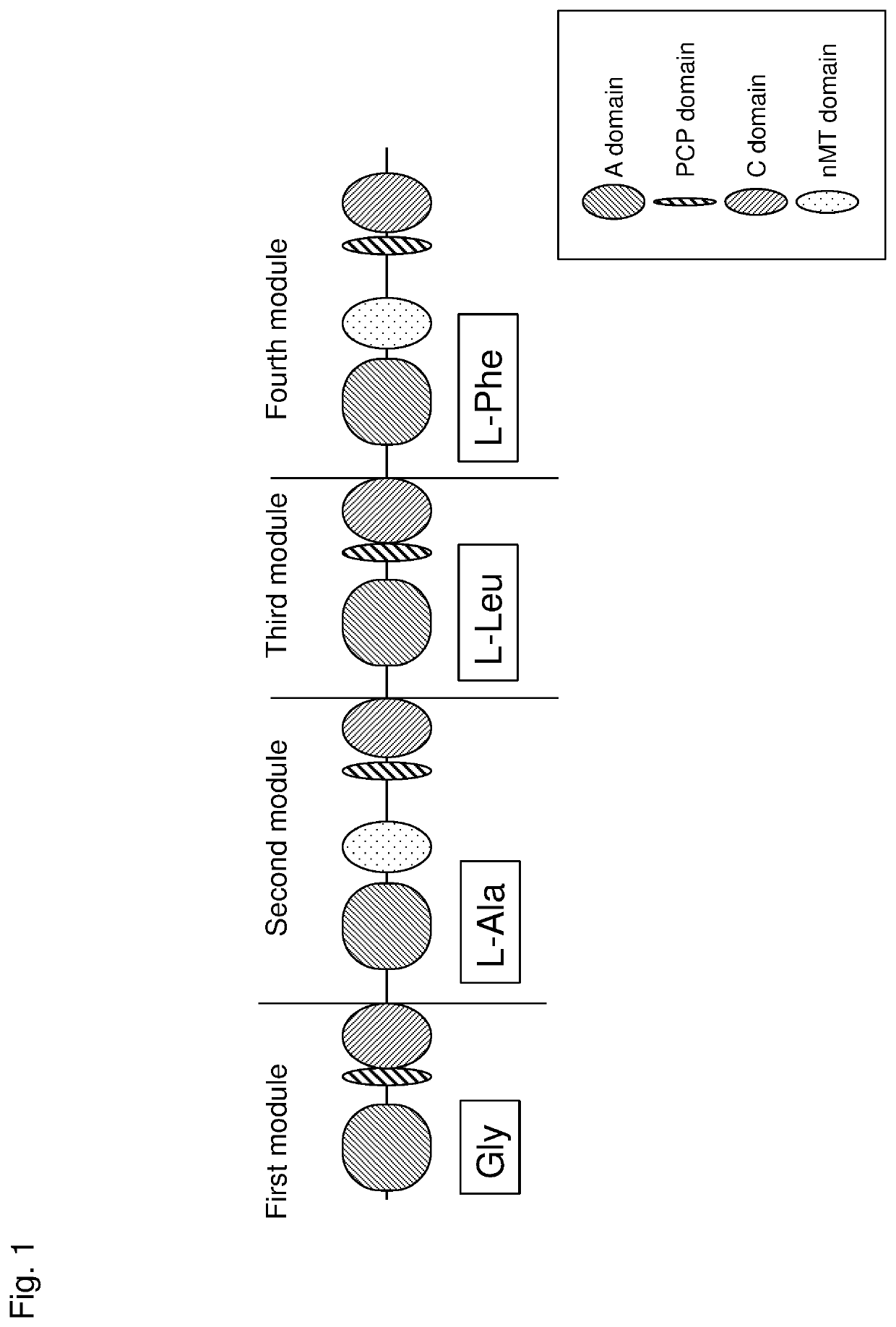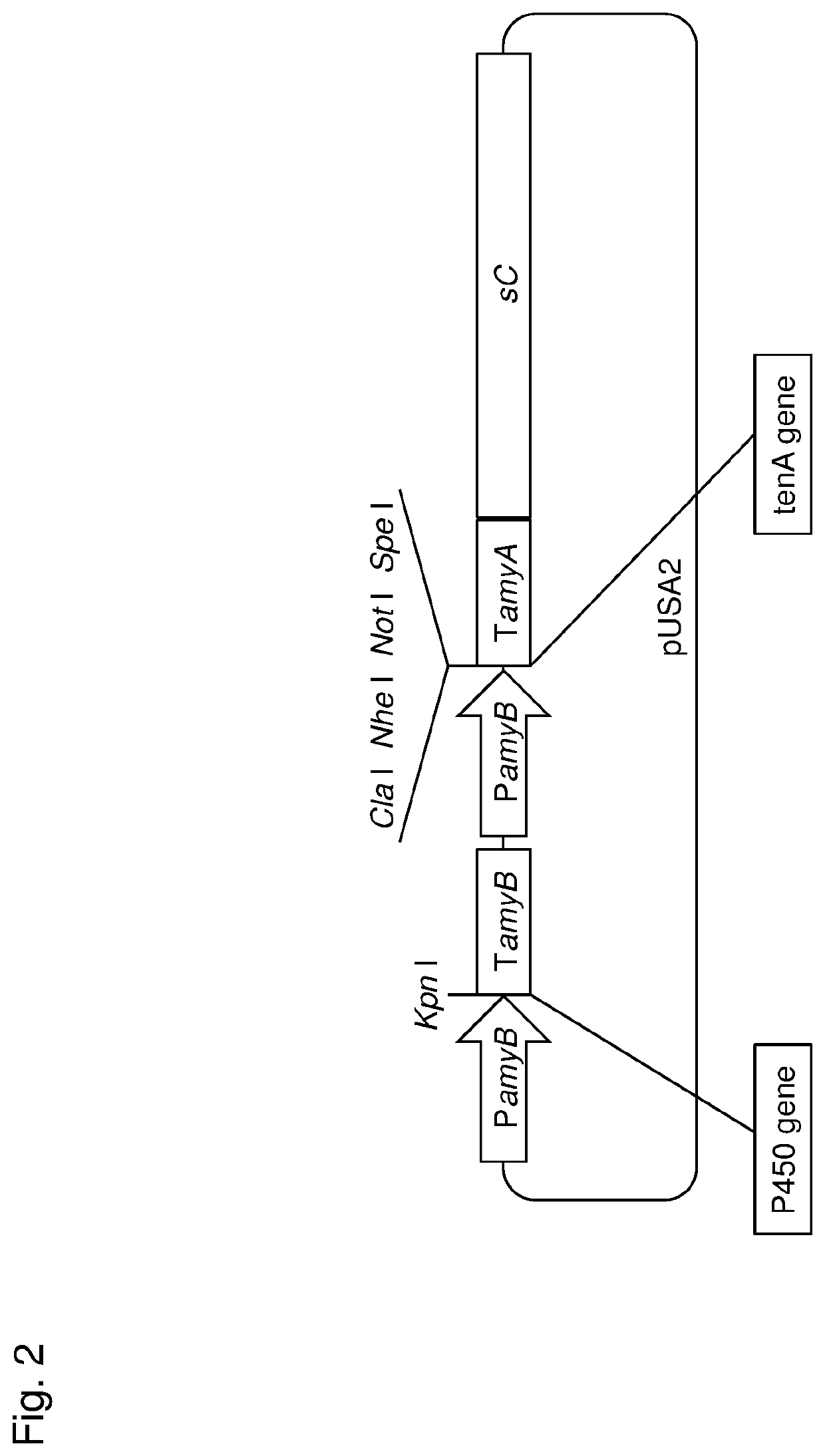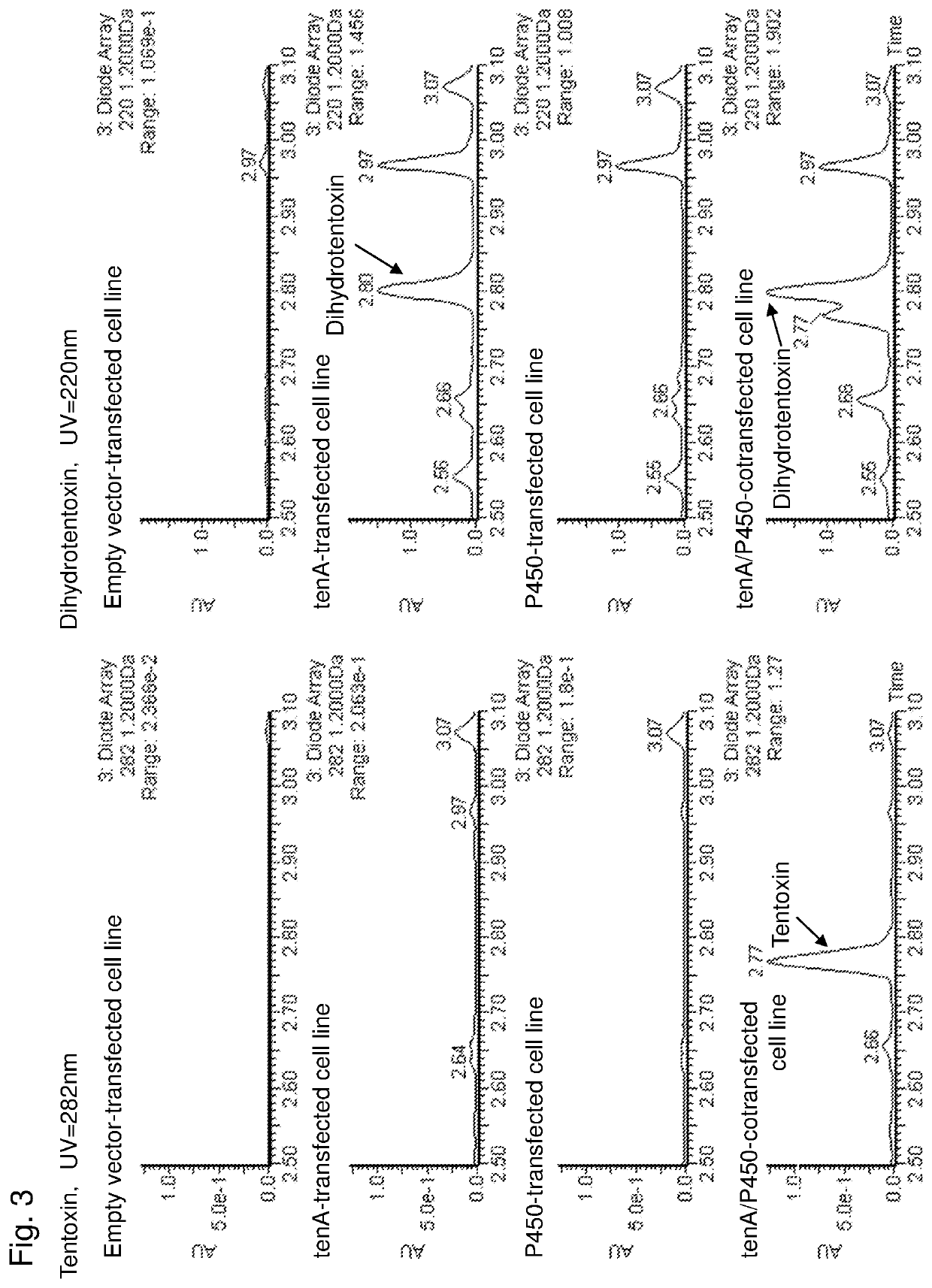Tentoxin synthesis gene, a method for producing tentoxin or dihydrotentoxin using the same, and a transformant comprising the same
a technology of tentoxin and synthesis gene, which is applied in the direction of peptides, enzyme stabilisation, transferases, etc., can solve the problems of difficult chemical synthesis, prevent the practical use of tentoxin, and the death of plants, and achieve good efficiency
- Summary
- Abstract
- Description
- Claims
- Application Information
AI Technical Summary
Benefits of technology
Problems solved by technology
Method used
Image
Examples
example 1
Alternaria alternata>
[0121]Conidia of A. alternata were inoculated into 200 ml of a CM liquid medium (in a 500-ml Erlenmeyer flask) and cultured on a shaker (130 rpm) at 26° C. for 48 hours. The cultured cells were collected using Miracloth and pressed using a spatula for dehydration. The cells were placed in a mortar that had been cooled to −20° C. in advance and liquid nitrogen was poured thereto such that the cells were frozen. The cells were quickly ground into a powder by a pestle, followed by genome DNA extraction using a DNeasy Plant Maxi Kit.
[0122]Genome analysis was conducted using two types of next-generation sequencers (5500×1 SOLiD (Life Technologies) and MiSeq (Illumina)). A library was prepared from the genome DNA of A. alternata obtained above using a 5500 SOLiD Mate-Paired Library Kit (for 5500×1 SOLiD) and a Nextera DNA Sample Prep Kit (for MiSeq). Genome analysis was conducted using the next-generation sequencers.
A. alternata>
[0123]A database of amino acid se...
example 2
[0137]In this Example, the amount of dihydrotentoxin produced upon heterologous expression of the NRPS gene identified in Example 1 was compared with the amount of dihydrotentoxin produced upon heterologous expression of the Cochliobolus miyabeanus-derived NRPS gene (CmNps3).
[0138]The Cochliobolus miyabeanus-derived NRPS gene is a gene disclosed as a tentoxin biosynthesis-related gene candidate in De Bruyne, L., et al., Comparative chemical screening and genetic analysis reveal tentoxin as a new virulence factor in Cochliobolus miyabeanus, the causal agent of brown spot disease on rice. Mol Plant Pathol, 2015. 17 (6): pp. 805-817. The CmNps3 gene encodes a protein having 78% homology at the amino acid level to a protein encoded by the NRPS gene identified in Example 1. Note that the above document does not teach that the protein encoded by the CmNps3 gene synthesizes dihydrotentoxin.
[0139]In this Example, transformants were prepared by introducing the tenA gene and the CmNps3 gene s...
PUM
| Property | Measurement | Unit |
|---|---|---|
| retention time | aaaaa | aaaaa |
| retention time | aaaaa | aaaaa |
| retention time | aaaaa | aaaaa |
Abstract
Description
Claims
Application Information
 Login to View More
Login to View More - Generate Ideas
- Intellectual Property
- Life Sciences
- Materials
- Tech Scout
- Unparalleled Data Quality
- Higher Quality Content
- 60% Fewer Hallucinations
Browse by: Latest US Patents, China's latest patents, Technical Efficacy Thesaurus, Application Domain, Technology Topic, Popular Technical Reports.
© 2025 PatSnap. All rights reserved.Legal|Privacy policy|Modern Slavery Act Transparency Statement|Sitemap|About US| Contact US: help@patsnap.com



